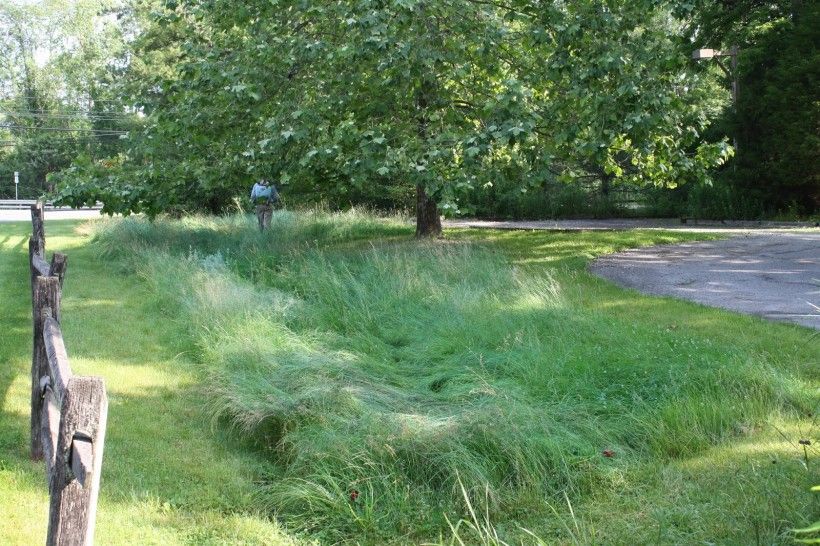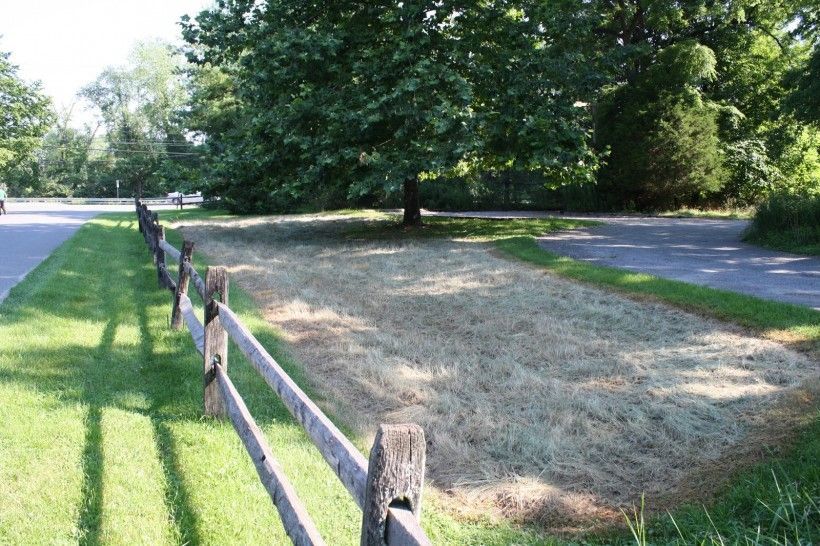Less Mowing, More Growing
Last week, the Conservancy undertook the first phase of an exciting effort to begin to transform our Chadds Ford campus.
In an effort to continue to "walk our talk," staff and volunteers planted more than 5,000 native plants in three plots outside the Conservancy offices. Besides the fact that the garden beds will look much prettier than turf grass, this planting project will:
- help strengthen the ecological health of our campus by installing what will become essential habitat for birds, bees and butterflies;
- reduce storm water runoff from our campus and improve the quality of water in the Brandywine;
- lower our carbon footprint by reducing the amount of turf grass that is regularly mowed; and
- create a beautiful garden that demonstrates the beneficial qualities of native plant communities.
The first phase of the project was to spray herbicide on several existing areas of turf grass to kill the grass and weeds. For this, we are extremely grateful to Brian O'Neill of Weeds, Inc. for donating his services.


Plastic knives were stuck in the ground every 12 inches to mark where plants should be placed. The color of each knife corresponded to a specific species of plant. It was an extremely well organized effort by our Horticultural Coordinator, Mark Gormel, and staff Gardener, Nora Sadler. At the end of the third day, almost all of the plants were in the ground and many hands were blistered. But the effort was well worth the time (and the blisters!), given the many ecological benefits the new plantings will provide.
Read more about the planting effort in the Chester County Press